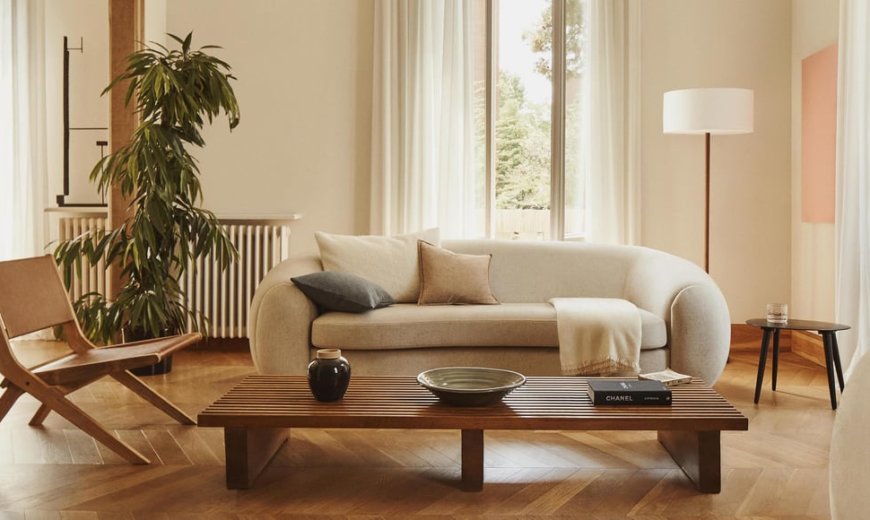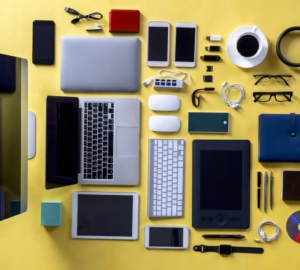In a world that constantly encourages us to accumulate more, the concept of minimalist living offers a refreshing alternative. It’s not about owning nothing, but about owning less to make space for more of what truly matters – be it experiences, relationships, or peace of mind. For Kenyans, living minimally isn’t just a trend; it’s a practical approach that can lead to significant benefits, from financial freedom to a calmer home environment.
At Retail Place, we believe that embracing minimalism can enrich your life. Let’s explore how you can start your journey to a simpler, more intentional way of living right here in Kenya.
What is Minimalist Living?
Minimalism, at its core, is a lifestyle that promotes intentionality. It’s about consciously identifying what adds value to your life and letting go of everything else. This applies not just to physical possessions, but also to commitments, distractions, and even digital clutter.
For a Kenyan context, minimalism can mean:
- Choosing quality over quantity when buying clothes or household items.
- Prioritizing experiences like family gatherings, safaris, or community work over excessive spending on material goods.
- Making the most of smaller living spaces common in urban areas like Nairobi.
- Embracing sustainable practices that reduce waste and reliance on new purchases.
Why Embrace Minimalism in Kenya?
Minimalist living offers compelling advantages that resonate deeply within the Kenyan context:
- Financial Freedom: With rising costs of living, intentional spending means less debt, more savings, and potentially earlier financial independence. You’ll spend less on impulse buys and more on what truly serves your life.
- Reduced Stress & Clutter: A decluttered home leads to a decluttered mind. Less stuff means less to organize, clean, and worry about.
- More Time & Energy: Imagine the hours saved not shopping for, cleaning, or maintaining things you don’t truly need. This time can be redirected to family, hobbies, or personal growth.
- Environmental Impact: By consuming less and choosing durable, sustainable items, you reduce your ecological footprint, a vital consideration for our planet.
- Focus on Experiences: When material possessions take a backseat, you naturally prioritize experiences, relationships, and personal development – aspects that often bring more lasting joy.
- Adapting to Space: With many Kenyans living in apartments or smaller homes, minimalism helps maximize space and create functional, aesthetically pleasing environments.
Getting Started: Practical Steps for Minimalist Living in Kenya
Ready to begin your minimalist journey? Here’s a step-by-step guide:
1. Start with a Decluttering Challenge
- The “One Thing a Day” Method: Begin by removing just one item you no longer need or use from your home each day for a month. It’s a gentle start that builds momentum.
- The “Four-Box Method”: Label four boxes: “Keep,” “Donate/Sell,” “Trash,” and “Relocate.” Go through a room or a specific area (like your wardrobe or kitchen pantry) and assign every item to one of these boxes.
- Focus on Categories, Not Rooms: Instead of tackling a whole room, try decluttering by category. Start with clothes, then books, then kitchen items. This helps you see the true volume of what you own in a specific category.
Also Read:
Tips for Organizing Your Home: Decluttering Made Easy in Kenya
2. Question Every Item You Own
Before keeping something, ask yourself:
- “Does this item add value to my life right now?”
- “Have I used this in the past year (or six months)?”
- “Does this bring me joy?” (Inspired by Marie Kondo)
- “Do I have multiple duplicates of this?”
- “Could someone else benefit more from this?”
3. Implement the “One In, One Out” Rule
To prevent clutter from creeping back: when you buy a new item, commit to letting go of an old, similar item. For example, if you buy a new pair of jeans, donate an old pair.
4. Be Intentional with Your Purchases
This is a cornerstone of minimalism. Before buying anything new:
- Pause and Reflect: Do I truly need this? Is it a want or a need?
- Research Quality: Invest in durable, versatile items that will last. This is particularly relevant in Kenya where quality local products and international brands are available.
- Avoid Impulse Buys: Resist sales and promotions unless you genuinely need the item.
Also Read:
Embracing Conscious Consumerism in Kenya: Shop Smarter, Live Better
5. Embrace Multi-Functional Items
Especially in smaller living spaces, items that serve multiple purposes are invaluable.
- A storage ottoman that doubles as seating.
- A sofa bed for guests.
- Furniture that can be folded or collapsed when not in use.
6. Digitally Declutter
Minimalism isn’t just about physical possessions.
- Unsubscribe from unnecessary emails.
- Organize your computer files and photos.
- Delete unused apps on your phone.
- Limit social media use to focus on real-life connections.
7. Prioritize Experiences Over Possessions
Shift your focus from acquiring things to creating lasting memories. Spend your resources on:
- Travel within Kenya (exploring our beautiful national parks, Rift Valley lakes, or coastal towns).
- Learning new skills.
- Spending quality time with loved ones.
- Investing in your health and well-being.
Minimalism and the Kenyan Context: Unique Benefits
Minimalism can particularly thrive in Kenya because it often aligns with existing values and practical realities:
- Resourcefulness: Kenyans are often naturally resourceful and skilled at making do with less, and repurposing items.
- Community Focus: Many cultures in Kenya emphasize community and shared experiences over individual material accumulation.
- Outdoor Lifestyle: With our beautiful climate and natural attractions, many Kenyans naturally prioritize outdoor activities and experiences.
Embracing minimalist living is a personal journey, not a strict set of rules. Start small, be patient with yourself, and celebrate every step towards a more intentional, clutter-free, and joyful life in Kenya.










2 Comments